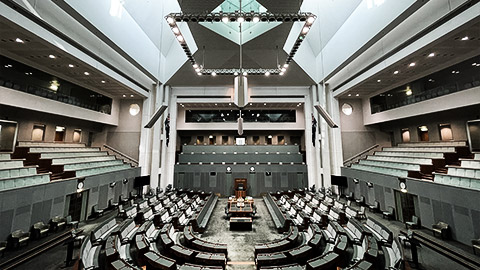Welcome to the unit PSPPCM006 - Select providers and develop contracts. This unit is designed to provide you with the necessary skills and knowledge required to effectively select preferred providers in the public sector. As a result of a formal request for offer process, you will learn how to evaluate offers, obtain necessary approvals, develop and formalise contractual arrangements, and debrief the market and other stakeholders.
This unit is particularly relevant for public sector staff members who are responsible for selecting providers. You will be required to apply the skills and knowledge described in this unit within the legislative, regulatory and policy environment in which they are carried out. Therefore, it is important that you consult and adhere to organisational policies and procedures while performing your duties.
By the end of this unit, you will be equipped with the necessary knowledge and skills to select and work with preferred providers in a professional and efficient manner whilst ensuring compliance with relevant policies and procedures.
Before we dive into the process of selecting providers and developing contracts, it is important to establish a strong understanding of the relevant legal and ethical frameworks that guide procurement practices in the public sector.
- Firstly, we need to explore the Commonwealth, state or territory, and local government legislation, policies, practices, and guidelines that relate to the award of contracts. This includes environmental purchasing and corporate social responsibility guidance, which are increasingly important considerations in procurement processes.
- Secondly, we will need to examine the procurement policies, practices, and approval processes within the specific organisation. Each organisation may have their unique policies and practices that must be followed.
- Thirdly, probity principles and issues will be discussed. Probity refers to the ethical and professional standards that underpin procurement processes. It is important to ensure that the procurement process is fair, transparent, and unbiased.
- Fourthly, we will consider codes of conduct, codes of practice, and standards of individual behaviour relating to the receipt and selection of offers. Procurement staff must act ethically and impartially when receiving and evaluating offers.
- Then, we will explore the legal aspects of the law of contract, laws of tort, trade practices law, commercial law, and other legislation relating to the receipt and evaluation of offers, negotiation, and award of contracts. It is important to understand the legal framework within which procurement processes operate to ensure compliance with relevant laws and regulations.
- Lastly, we will consider equal employment opportunity in procurement processes. This involves ensuring that all potential providers are given a fair and equal opportunity to participate in the procurement process, regardless of any characteristics such as race, gender, or age.

Commonwealth Legislation, Policies, Practices, and Guidelines:
This legislation governs procurement by the Australian Government and establishes the Commonwealth Procurement Guidelines (CPGs) and the Commonwealth Procurement Rules (CPRs) that provide detailed guidance on the conduct of procurement processes.
These guidelines set out the principles of procurement, including transparency, accountability, value for money, and fair treatment of suppliers, as well as the procedures that should be followed when conducting procurement processes, such as requirements for planning, tendering, and evaluation.
This guide aims to support Australian Government agencies in their efforts to achieve sustainable procurement outcomes by providing guidance on how to incorporate sustainability considerations into the procurement process.
This policy aims to increase the participation of Indigenous businesses in government procurement by setting procurement targets for Indigenous businesses and providing training and support to Indigenous businesses.
State and Territory Legislation, Policies, Practices, and Guidelines:
This framework provides guidance to NSW government agencies on the procurement of goods and services, including requirements for environmental purchasing and sustainable procurement.
The VGPB policies provide guidance to Victorian government agencies on procurement, including requirements for ethical and sustainable procurement, environmental considerations, and corporate social responsibility.
This policy sets out the procurement principles and practices that Queensland government agencies must follow when procuring goods and services, including requirements for environmental sustainability and social responsibility.
Local Government Legislation, Policies, Practices, and Guidelines:
This legislation governs the conduct of local government in New South Wales, including procurement processes.
This legislation sets out the responsibilities of local government in Victoria, including procurement processes.
This code of practice provides guidance to local government agencies in Queensland on procurement processes, including requirements for environmental and social sustainability.
Overall, the aim of these legislation, policies, practices, and guidelines is to ensure that procurement is conducted in a fair, transparent, and accountable manner, with a focus on achieving value for money and supporting sustainable and socially responsible outcomes. Environmental purchasing and corporate social responsibility guidance are increasingly being incorporated into procurement processes across all levels of government in Australia.
Environmental purchasing and corporate social responsibility guidance

In recent years, there has been a growing recognition of the importance of environmental sustainability and corporate social responsibility in procurement processes across all levels of government in Australia. As a result, there has been a significant shift towards incorporating these principles into procurement policies and practices by:
- Adoption of environmental purchasing guidelines to encourage the procurement of environmentally friendly and socially responsible goods and services.
- Adoption of corporate social responsibility (CSR) guidance to align procurement activities with social and environmental objectives.
- Consideration of the social and environmental impacts of suppliers when making procurement decisions.
- Promotion of ethical business practices in procurement processes.
- Support for local communities through procurement activities.
- Use of online databases that provide information on sustainable products and suppliers.
- Training and capacity-building programs to help procurement professionals develop the skills and knowledge they need to implement sustainable procurement practices.
- A shift towards incorporating environmental sustainability and corporate social responsibility principles into procurement policies and practices across all levels of government in Australia.
- Recognition of the importance of sustainable procurement practices in promoting sustainability and responsible business practices.
- A commitment to driving positive change in the way that goods and services are procured and used, contributing to a more sustainable future for all Australians.
Organisational procurement policies, practices, and approval processes are important guidelines and procedures that govern the way an organisation purchases goods and services. They ensure that procurement is conducted in a fair, transparent, and efficient manner, while also ensuring compliance with relevant laws and regulations. Below are some examples of organisational procurement policies, practices, and approval processes:
These policies define the rules and procedures that guide procurement decisions. They typically cover topics such as supplier selection, contract negotiation, and compliance with regulations. An example of a procurement policy is a requirement for all procurement activities to be conducted through a central procurement team to ensure consistency and standardisation.
These are the actual methods and procedures that are used to conduct procurement activities. They include procedures for identifying suppliers, soliciting bids, evaluating proposals, and negotiating contracts. An example of a procurement practice is conducting a competitive bidding process to select a supplier for a particular service or product.
These are the steps that must be taken to obtain approval for procurement decisions. This ensures that procurement activities are subject to proper oversight and governance. An example of an approval process is requiring all procurement decisions above a certain dollar value to be approved by a senior executive, such as a Chief Financial Officer.
These policies and procedures define the process for managing suppliers and ensure that they meet the organisation’s expectations for quality, delivery, and cost. They may include requirements for supplier performance reviews, risk assessments, and compliance with ethical standards. An example of a supplier management policy is requiring suppliers to adhere to the organisation’s code of conduct, which prohibits the use of child labour.
These policies and procedures ensure that procurement decisions are made with environmental and social sustainability in mind. They may include requirements for suppliers to provide evidence of their sustainability practices or to meet certain environmental or social certifications. An example of a sustainability policy is requiring all products to meet specific sustainability criteria, such as being made from recycled materials.
Overall, these policies, practices, and approval processes are designed to ensure that an organisation’s procurement activities are conducted in a responsible and ethical manner and that they contribute to the achievement of the organisation’s broader objectives.
Probity principles are ethical principles that guide the conduct of procurement professionals and ensure that procurement processes are fair, transparent, and impartial. The following are some of the key probity principles in procurement:
Procurement professionals must act honestly and with integrity in all their dealings with suppliers. One potential issue for integrity in procurement is the presence of conflicts of interest. Conflicts of interest can occur when an individual or organization involved in the procurement process has a personal or financial interest in the outcome of the procurement process, which may influence their decision-making and compromise their integrity.
All suppliers must be treated fairly and equally in the procurement process. The potential probity issue related to fairness is the appearance of bias or favouritism towards one supplier over another, which could undermine the integrity of the procurement process.
Procurement professionals must remain objective and unbiased in their decision-making. The potential probity issue related to objectivity is the use of subjective criteria or personal biases in the evaluation of supplier proposals, which could lead to unfair treatment of suppliers and a lack of transparency in the procurement process.
All information related to the procurement process must be kept confidential and not disclosed to unauthorised persons. The potential probity issue related to confidentiality is the unauthorised disclosure of confidential information, which could give one supplier an unfair advantage over others.
Procurement processes must be transparent, and suppliers must be provided with clear information about the procurement process. The potential probity issue related to transparency is the lack of transparency in the procurement process, which could lead to misunderstandings and mistrust among suppliers.
Procurement professionals must be accountable for their actions and decisions in the procurement process. The issue with accountability can arise when procurement professionals are not held accountable for their actions, leading to a lack of transparency and the potential for corruption.
Procurement professionals must conduct themselves in a professional manner at all times. The issue with professionalism can arise when procurement professionals engage in unprofessional behaviour, such as using inappropriate language, making derogatory comments, or acting in a manner that is disrespectful to suppliers.
By adhering to these probity principles, procurement professionals can ensure that procurement processes are conducted fairly, transparently, and without bias, and that the best value for money is obtained for the organisation.
Examples:
- For example, in a procurement process for a government contract, the procurement professional responsible for evaluating supplier proposals is required to remain objective and unbiased in their decision-making. If the procurement professional were to use subjective criteria, such as personal preferences or biases, in their evaluation of supplier proposals, this would be a breach of the objectivity probity principle.
- In another example, if a procurement professional responsible for awarding a contract has a personal relationship with a supplier, this could be a potential conflict of interest. To avoid this, procurement professionals are often required to declare any potential conflicts of interest and to recuse themselves from the procurement process if necessary in order to uphold the integrity probity principle.

In procurement, codes of conduct, codes of practice, and standards of individual behaviour are designed to ensure that the receipt and selection of offers are conducted in an ethical and transparent manner. Some of the key codes and standards in this regard are:
Code of Conduct
A code of conduct is a set of guidelines that outlines expected standards of behaviour for procurement professionals. The code of conduct typically includes principles such as integrity, impartiality, confidentiality, and accountability, and sets out the standards of behaviour expected of procurement professionals in the receipt and selection of offers.
Example:
The International Federation of Purchasing and Supply Management (IFPSM) has developed a code of ethics for procurement professionals, which includes principles such as honesty, integrity, impartiality, and professionalism. This code of conduct sets out the expected standards of behaviour for procurement professionals in the receipt and selection of offers.
Code of Practice
A code of practice is a set of guidelines that outline best practices and standards for procurement professionals in the receipt and selection of offers. The code of practice typically covers areas such as supplier engagement, evaluation criteria, and decision-making processes, and provides guidance on how to conduct these activities in an ethical and transparent manner.
Example:
The Australian Government has developed a procurement code of practice, which provides guidance on how to conduct procurement activities in a transparent, ethical, and efficient manner. This code of practice covers areas such as supplier engagement, evaluation criteria, and decision-making processes, and provides guidance on how to ensure that these activities are conducted in accordance with best practices and standards.
Standards of Individual Behaviour
Standards of individual behaviour are guidelines that outline expected behaviour for individual procurement professionals in the receipt and selection of offers. These standards typically include principles such as impartiality, objectivity, and transparency, and provide guidance on how procurement professionals should behave in order to ensure that the procurement process is fair and transparent.
Example:
The Chartered Institute of Procurement and Supply (CIPS) has developed a set of ethical principles for procurement professionals, which includes standards such as impartiality, objectivity, and transparency. These standards provide guidance on how individual procurement professionals should behave in order to ensure that the procurement process is fair, transparent, and conducted in accordance with ethical principles.
By adhering to these codes of conduct, codes of practice, and standards of individual behaviour, procurement professionals can ensure that the receipt and selection of offers are conducted in an ethical and transparent manner and that the best value for money is obtained for the organization.
There are several aspects of various laws and legislation that are relevant to the receipt and evaluation of offers, negotiation, and award of contracts. Here are some key examples:
- Law of Contract: The law of contract governs the legal agreement between two or more parties, including the terms and conditions of the contract. In the procurement context, this means that any offer or proposal made by a supplier must be a legally binding offer, and that the terms and conditions of the contract must be agreed upon by both parties.
- Laws of Tort: The laws of tort relate to civil wrongs or injuries caused by one party to another, and can include issues such as negligence, misrepresentation, and defamation. In the procurement context, this means that suppliers must not make false or misleading statements or misrepresentations during the tender process, as this could lead to legal action being taken against them.
- Trade Practices Law: Trade practices law is designed to ensure fair competition in the marketplace and prevent anti-competitive behaviour. In the procurement context, this means that suppliers must not engage in anti-competitive behaviour such as price fixing or bid rigging, and that the evaluation and award of contracts must be conducted in a fair and transparent manner.
- Commercial Law: Commercial law governs the conduct of businesses and commercial transactions, including the purchase and sale of goods and services. In the procurement context, this means that suppliers must comply with all relevant commercial laws and regulations, and that the procurement process must be conducted in accordance with these laws.
- Other Legislation: Other legislation that may be relevant to the procurement process includes privacy legislation (which governs the collection and use of personal information), environmental legislation (which may impose requirements on suppliers in relation to sustainability and environmental impact), and workplace health and safety legislation (which may impose requirements on suppliers in relation to worker safety).
It is important for procurement professionals to have a good understanding of the various legal and regulatory frameworks that apply to the procurement process, in order to ensure that all activities are conducted in a legally compliant and ethical manner.

Equal employment opportunity (EEO) in procurement refers to the practice of ensuring that all suppliers have an equal opportunity to participate in the procurement process, regardless of factors such as gender, race, ethnicity, age, religion, or disability.
There are several ways in which EEO can be incorporated into the procurement process, including:
- Developing and enforcing policies and procedures that promote EEO in procurement. This may involve setting targets for the participation of minority or disadvantaged suppliers, providing training to procurement staff on EEO issues, and regularly reviewing procurement processes to ensure that they are fair and transparent.
- Actively seeking out and engaging with diverse suppliers. This may involve conducting outreach activities to connect with minority or disadvantaged suppliers, providing information and support to these suppliers to help them participate in the procurement process, and promoting the benefits of working with a diverse range of suppliers.
- Including EEO requirements in procurement contracts. This may involve requiring suppliers to demonstrate their commitment to EEO principles, such as by providing information on their diversity and inclusion policies and practices, or by agreeing to participate in diversity and inclusion training programs.
- Monitoring and reporting on EEO outcomes in procurement. This may involve collecting and analysing data on the participation of diverse suppliers in the procurement process, and regularly reporting on progress towards achieving EEO targets and goals.
Overall, incorporating EEO principles into the procurement process can help to promote fairness, diversity, and inclusion, and can also help to support the growth and development of a diverse range of suppliers.

